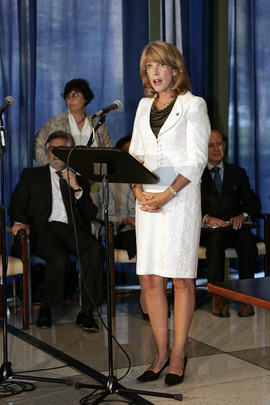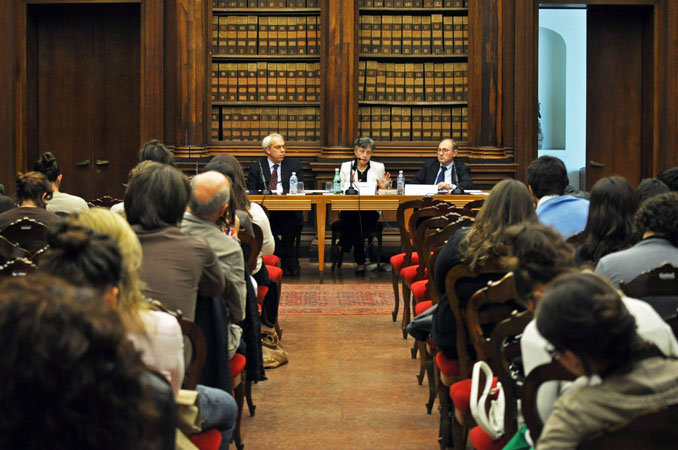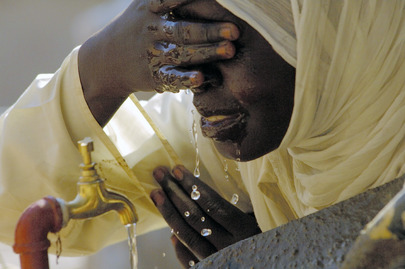© Università degli Studi di Padova - Credits: HCE Web agency
- HUMAN RIGHTS CENTRE
- RESEARCH AND COURSES
- Publications
- Archive "Peace Human Rights"
- HUMAN RIGHTS CENTRE
- RESEARCH AND COURSES
- Publications
- Archive "Peace Human Rights"

The Italian Interministerial Committee for Human Rights (CIDU) has launched an online public consultation on the National Action Plan on Business and Human Rights 2016-2021 with the aim of ...

On 9 October 2015, at the end of the 56th session held in Geneva from 21st September to 9th October, the UN Committee for Economic, Social and Cultural Rights (CESCR) adopted the concluding ...

The 56th session of the UN Committee for economic, social and cultural rights will be held in Geneva from 21st September to 9th October. This body is composed by 18 independent experts, in charge of ...

With the decision adopted on 5 December 2014, published on 15 April 2015, in the case of APPROACH v. Italy (application no. 94/2013) the European Committee of Social Rights (ECSR) of the Council of ...

The Documentation Centre on Environmental Conflicts with the collaboration of the association ‘A Sud’ presented the Italian Atlas of Environmental Conflicts, a free website which ...

The following are the latest updates on some collective complaints against Italy, lodged to the European Committee of Social Rights, that is a Committee composed of 15 independent experts whose ...

On 3 October 2014, Italy adopted the ratification law of the Optional Protocol to the International Covenant on Economic, Social and Cultural Rights with Law No. 152. The Protocol, which was ...

A high-level conference on social rights will take place on 17 and 18 October 2014, in Turin, at Teatro Regio. It is organized in the framework of the Italian Presidency of the European Union, and ...

On 6 February 2013, the UN High Commissioner for Human Rights, Navy Pillay, greets the upcoming entering into force of the Optional Protocol to the International Covenant on Economic, Social and ...

The Henry Dunant University College, in partnership with the UNESCO Chair on Democratic citizenship and cultural freedom of the University of La Rioja (Spain) organises the eighteenth edition of the ...

The indigenous peoples' right to own and possess their territories extends to natural resources. The ILO Convention No. 169 specifies that the term 'land' used in Article 14 of the Convention is ...

The licences of governments to the companies for the development of agrofuels are easily granted by reason of the presumed advantages that this kind of activity can bring: independence from fossil ...

When the interests for agrofuels widely prevail on food wants, taking off lands from food crops the right to food is affected and in many cases threatened. Especially in developing countries the ...

Water is the essential resource for life and every human being has the right to access to water necessary for his/her basic needs. Nevertheless, the international human rights law, surprisingly, is ...

The right to food is defined in the International Covenant on Economic, Social and Cultural Rights as: "the right of everyone to an adequate standard of living for himself and his family, ...